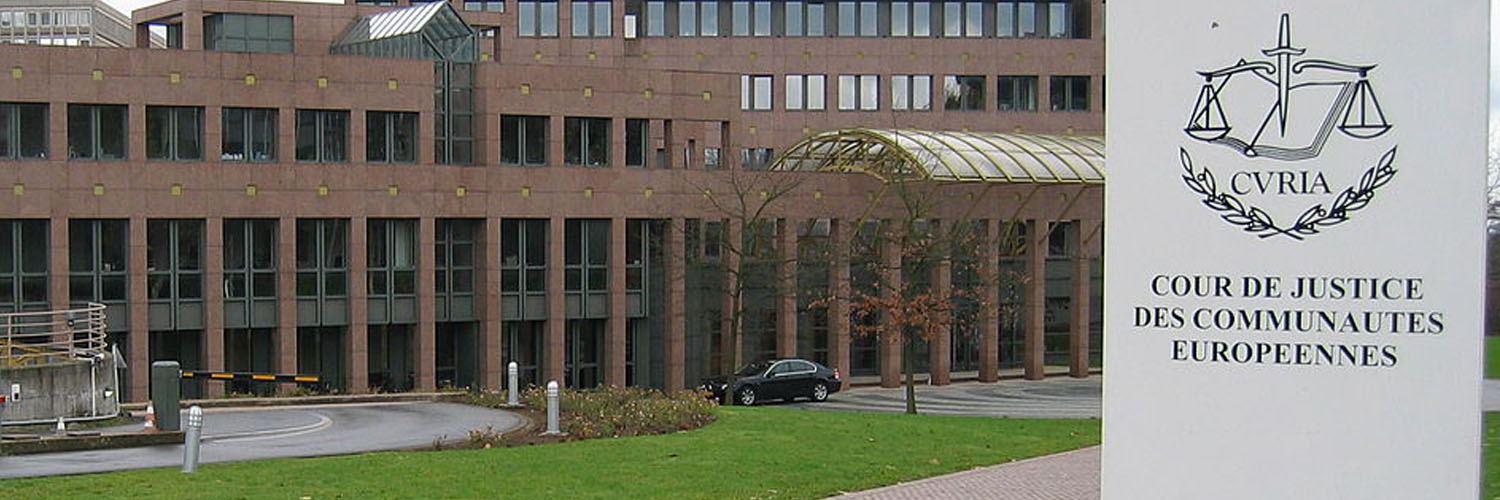Brexit: revocation case that could ‘decide the fate of a nation’
Polly Botsford

At the end of November, 27 judges (rather than the usual three to five) of the Court of Justice of the European Union (CJEU) heard oral arguments as to whether Article 50 of the EU Treaty, which triggers withdrawal, can be unilaterally revoked. That is, whether the UK would be allowed to reverse Brexit should there be a mandate to do so.
The four-hour hearing is just one element in the proceedings. Extensive written submissions have also been made by both parties. The Council of the European Union and the European Commission have also made their views known.
The UK Government’s position is that it will never seek to revoke Article 50 or reverse Brexit so this particular ‘Brexit challenge’ is dealing with hypotheticals. But the UK political landscape is shifting fast. The notion of a second referendum, once viewed as unlikely, has gathered considerable momentum throughout 2018. And a measured analysis of what options might be available has become more pertinent.
If Article 50 can be revoked, and if doing so leaves the UK in no worse a position in the EU, the options available widen and the rationale for a second referendum is strengthened.
This is a profoundly important moment in the life of the UK. MPs are genuinely struggling with how to act in the national interest. In order to do so, they need to be clear about what the options are.
Jolyon Maugham
Barrister and founder, the Good Law Project
Jolyon Maugham QC, a British tax barrister, has spearheaded a number of Brexit-related legal challenges and is a major player in the revocation case through The Good Law Project, which he runs. ‘This is a profoundly important moment in the life of the UK,’ he says. ‘MPs are genuinely struggling with how to act in the national interest. In order to do so, they need to be clear about what the options are.’
The revocation case could have a key role to play in the Brexit debate in the coming weeks, and petitioners are keen that the CJEU gives its finding before Christmas. Sara Chisholm-Batten, a partner at Michelmores and an Officer of the IBA’s Litigation Committee, says the case is ‘potentially significant’ from a ‘tactical perspective’. The court could find that revocation is not an option, which would in turn dampen the debate on a second referendum. ‘If Article 50 cannot be revoked, then we would have to engage in further renegotiations to re-join and on the terms,’ she says.
Chisholm-Batten believes there are considerable factors supporting revocation. There is a good argument that Article 50 is only an ‘intention’ to withdraw not withdrawal itself, not a binding agreement and, thus, revocable.
Cross-bench Scottish peer, Lord Kerr, was involved in drafting the EU Treaty itself and has been clear on how the Treaty should be interpreted. ‘As far as the treaty is concerned there are lots of options. There is a provision to seek some extra time for negotiation and, much more important, there’s the ability at any stage to take back the letter that the prime minister sent to President Tusk on 29 March,’ he said in 2017. ‘I’m not a politician. I’m just the guy who wrote the treaty telling you what the treaty means.’
The revocation case is just the most recent Brexit-related challenge in the courts. The headline-grabbing challenges started with the case brought by Gina Miller and Deir Tozetti Dos Santos in 2016. In that case, the UK Supreme Court had to determine whether notification to withdraw from the EU needed the consent of MPs (through primary legislation). Eight of the eleven justices found that it did.
Other cases have emerged. Judicial review challenges have been made, for instance, regarding irregularities in the ‘Vote Leave’ campaign’s spending. Another Good Law Project-run case put the spotlight on the UK Electoral Commission’s work in that regard. A crowdfunded case by the ‘UK in EU Challenge’ alleges that the Electoral Commission’s findings on irregularities in the Vote Leave campaign mean that the referendum result is invalid, with a hearing scheduled for early December.
There have been cases dealing with specific areas of EU/UK relations, such as the European Arrest Warrant. In these, individuals who’ve been subject to it are arguing that, if the warrant were to go ahead, they could be imprisoned in a country (the UK) which, in the near future, would not be an EU Member State and, therefore, the individuals may not be guaranteed the same rights as when that country was a Member State. Over the summer, the CJEU ruled against the individuals in the lead case in this area.
The UK Government is acutely aware of the political ramifications of the revocation case. One of its arguments has been that revocation is a political not a legal issue. David Johnston QC represented the government at an earlier stage in the proceedings. ‘MPs had no constitutional right to ask a court to interfere in a political decision at Westminster,’ he said.
Maugham plays down the case’s political nature, and puts it in rule of law terms. ‘it’s entirely unsurprising that David Johnston QC has sought to characterise this as a political dispute because it makes judges nervous,’ he says. ‘But this revocation case is not political. The position [in the Treaty] is not clear in the law, and the job of the rule of law is to make these things clear.’
Polly Botsford is a freelance journalist and can be contacted at polly@pollybotsford.com
